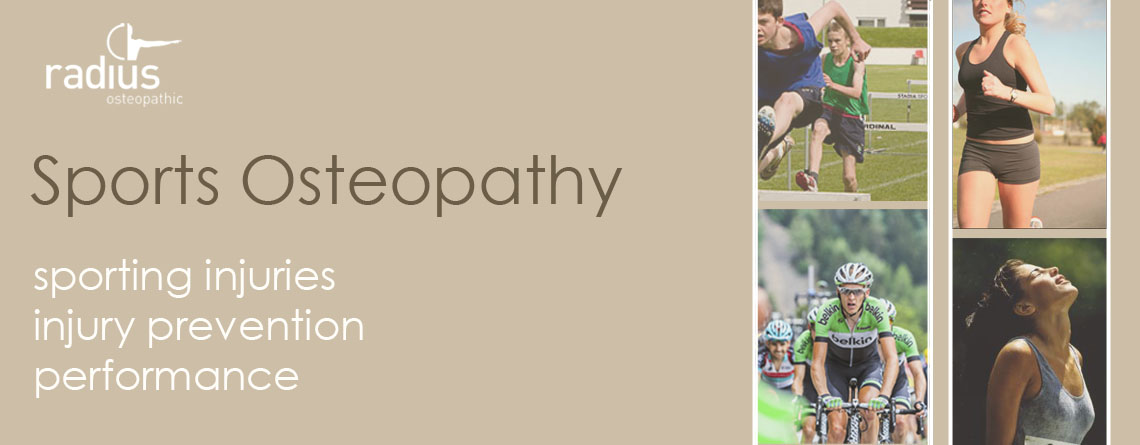Sports osteopaths can work in a variety of settings, such as sporting clubs, athletic arenas and in private practice. Like all osteopaths, they diagnose, treat, manage or try to prevent general sporting injuries. However, a sports osteopath will often focus on one or two specific sports. That focus includes a comprehensive understanding of biomechanics, performance needs and injuries or strains that commonly occur within that sport.
Your sports osteopath aims to help you enhance your sporting performance in your chosen sport. You may not have a sporting injury and may instead be seeking to improve specific muscle strength, sporting capabilities or techniques, and prevent future injuries.
While all osteopaths have knowledge of human physiology and biomechanics, sports osteopaths have developed further knowledge, experience and training in understanding biomechanical requirements in a sport or sports, applying related clinical assessment approaches, strengthening, conditioning and rehabilitation techniques.
Assessment and treatment
There are clinical processes and requirements that all osteopaths follow, regardless of their clinical focus, before they provide treatment. These include performing a physical assessment, a thorough health history, discussion of a proposed treatment plan, provision of advice and information on the risks and benefits of any proposed treatment; and confirmation of your willingness to proceed – otherwise known as informed consent.
Assessments performed by a sports osteopath may include the following additional and specific clinical components:
- Review of the way your body moves, including any restrictions to your range of movement, speed, agility, flexibility, strength or coping against the requirements of your chosen sport
- Discussion of your perceived sporting performance, muscle weaknesses, injury concerns or past injuries
- Use of outcome measures to determine your range or level of sporting function, and biomechanical imbalances in your body that may put you at risk of injury or repeat injury during play
- Use of a range of physical examinations, neurological and orthopaedic tests to assess current function or movement or the severity of your injury and provide a prognosis of how, and to what extent, the injury will impact your capacity to play or perform.
What distinguishes the treatment of a sports osteopath from another osteopath that may have an interest in managing general sporting injuries with hands on physical techniques, is use of active treatment approaches designed uniquely around the demands of your chosen sport. For instance, use of hands off exercises and routines that empower you to build your capabilities, techniques and resilience in a sport or specific sporting role. Sports osteopaths coach sports people of all levels in the application and refinement of active treatment techniques related to their specific sport and role.
Sports osteopaths are part of a broad network of sports health professionals. They give referrals to and work with sports physicians, general practitioners, exercise physiologists, physiotherapists and other health professionals. Osteopaths also receive regular referrals from other health professionals.
Special considerations of sports osteopaths
Sports osteopaths have in depth knowledge of:
- The musculoskeletal and biomechanical requirements of sports people in a specific sport and in specific sports roles
- Strength, endurance and conditioning programs relevant to a sport, and are able to provide advice on programs that may be suitable
- Musculoskeletal sports injuries and complications associated with these injuries, often in relation to their preferred sport
- Sports dynamics, motivation and coaching
- Referral frameworks, pharmacological and surgical interventions that may be applicable to musculoskeletal sports injuries.
Book your session with a sport osteopath today.
